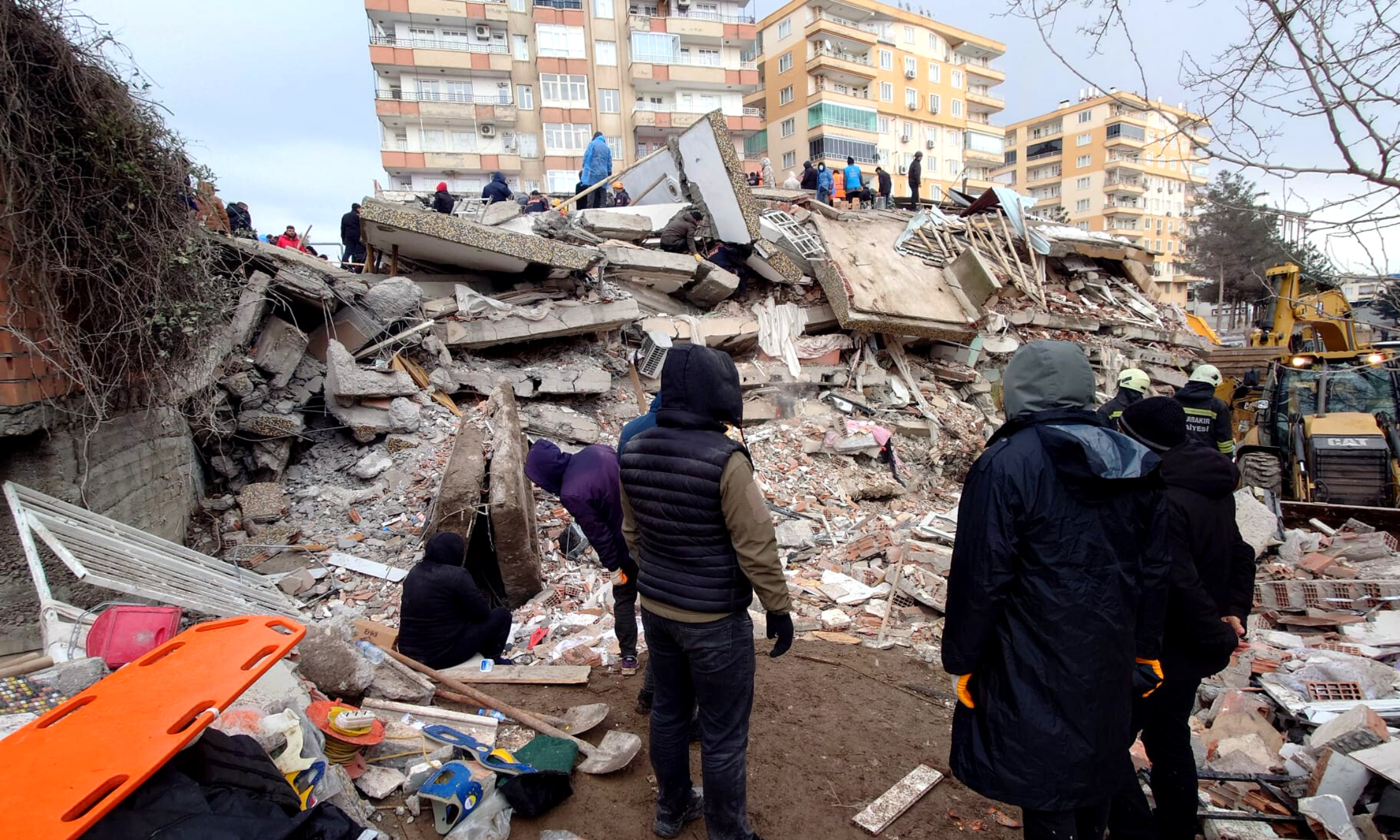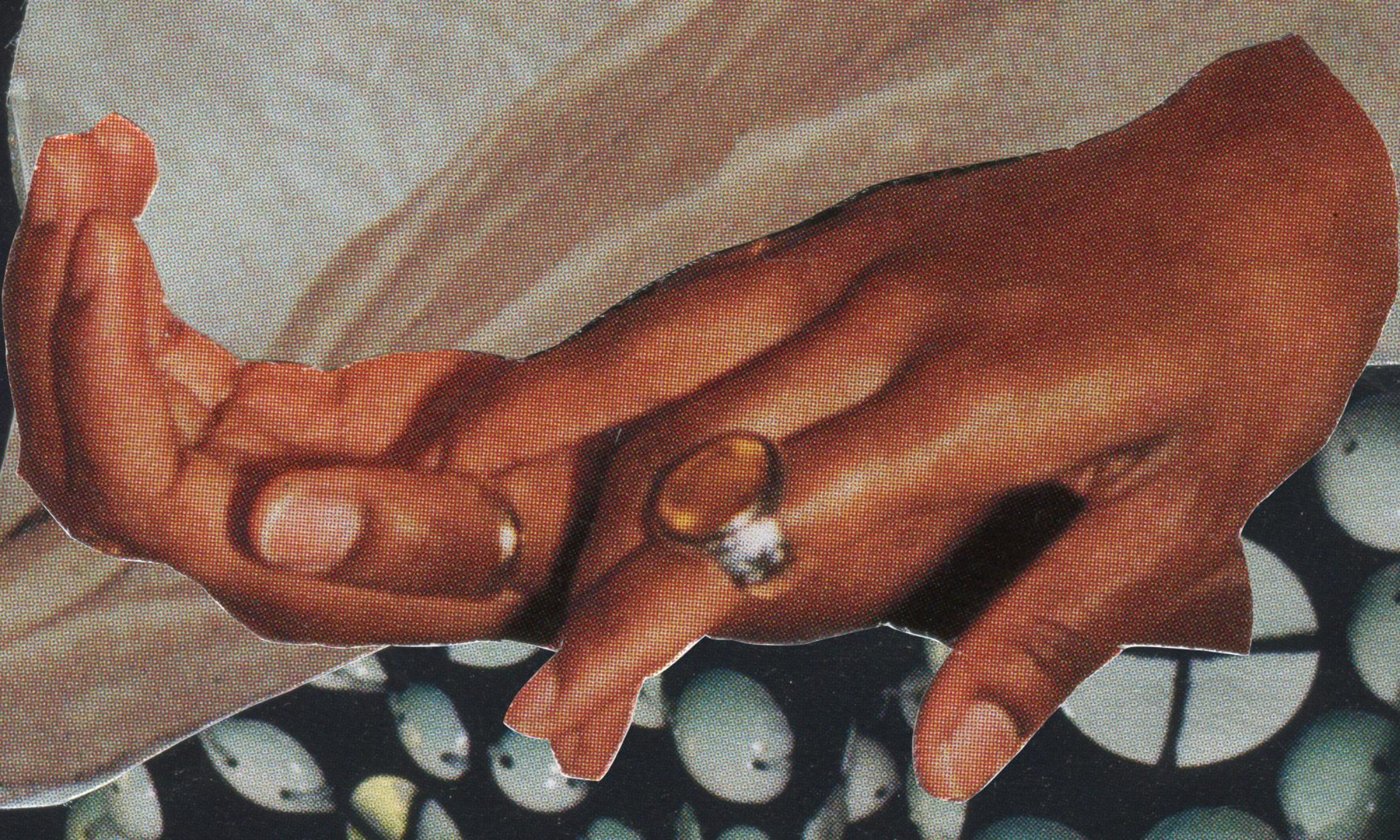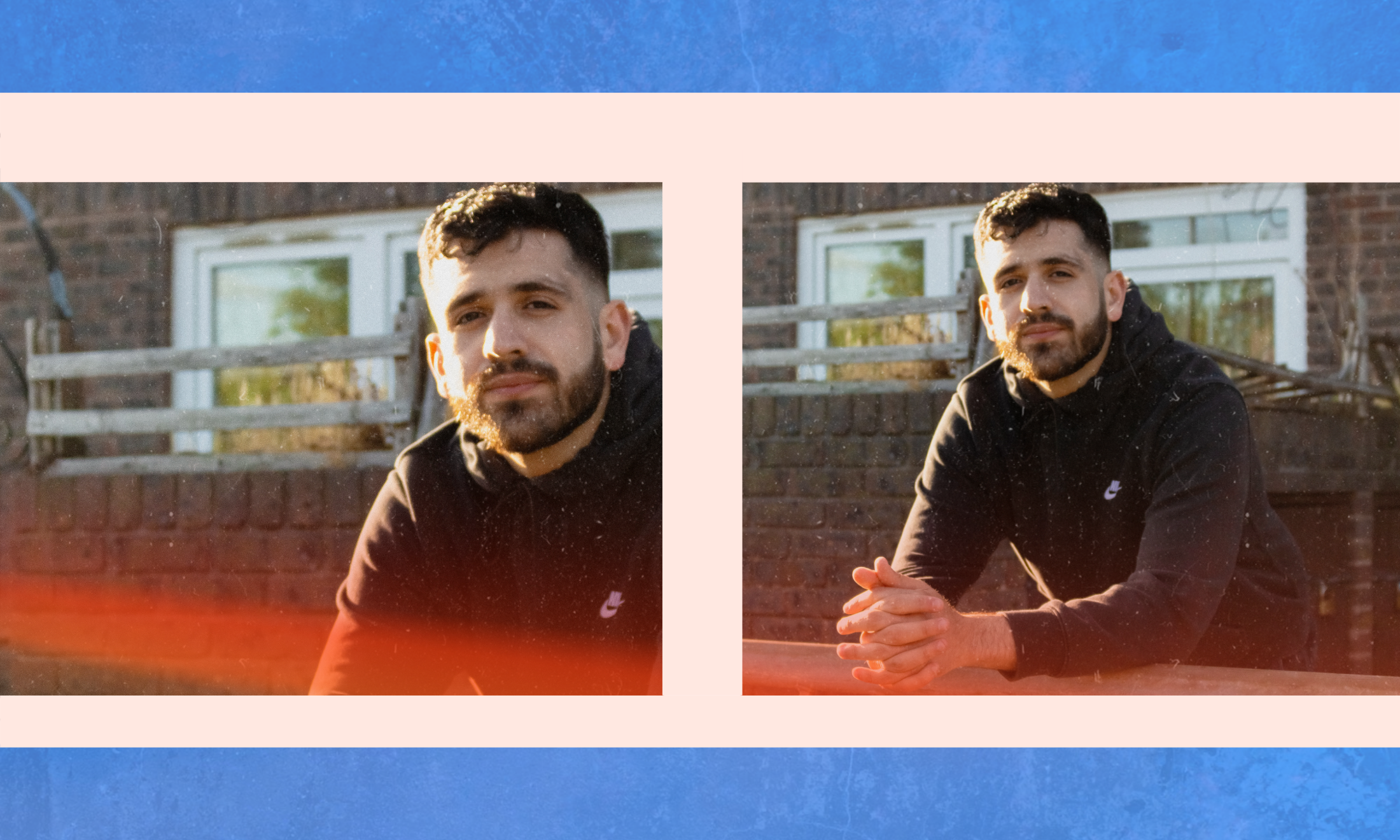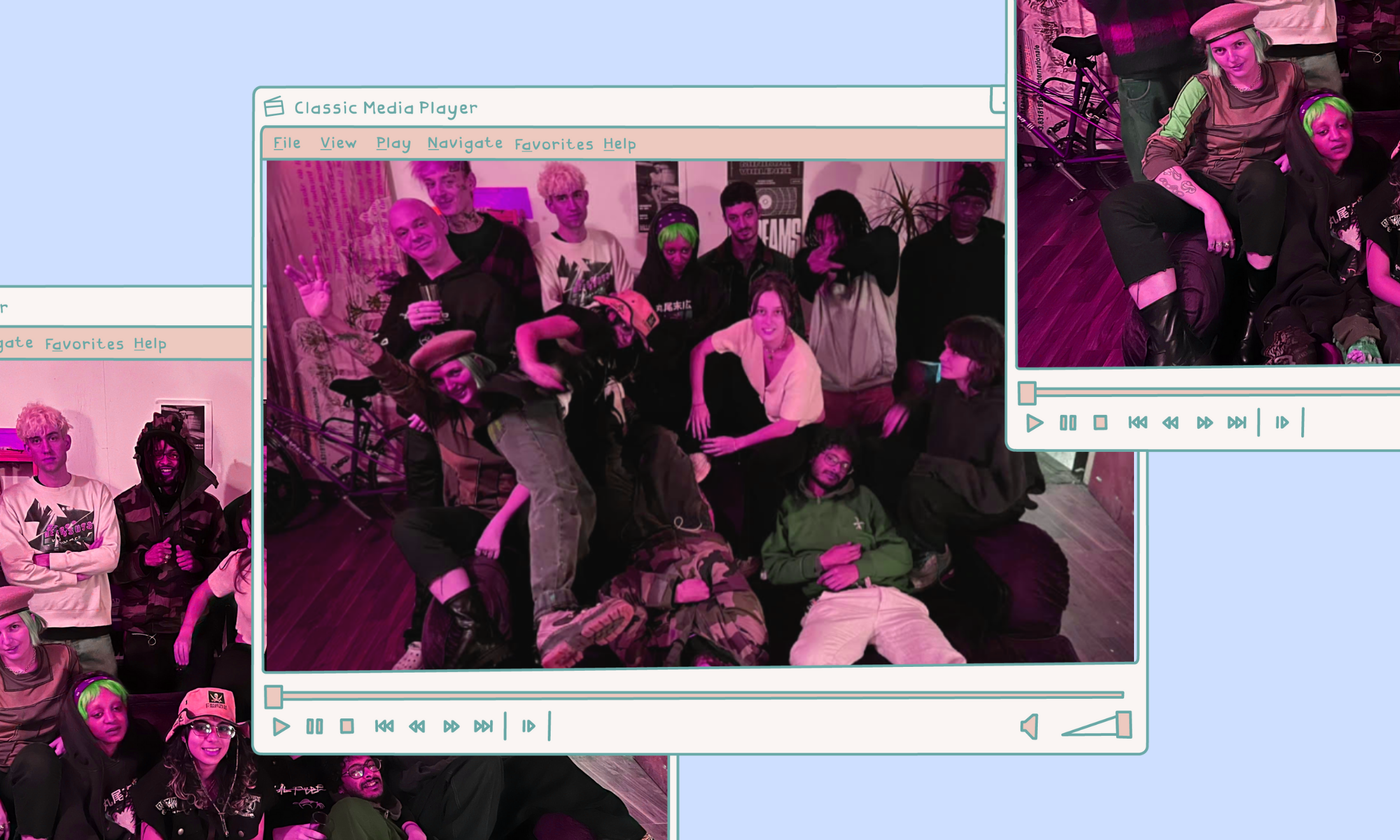
photography courtesy of Rising Sun Collective
Meet the collective turning a south east London pub into a co-op
Housing co-ops, like the Rising Sun Collective, are providing alternative living options in the context of increasingly unaffordable rents.
Lisa Insansa
06 Nov 2021
“It was Sunday and we’d all had a pretty heavy weekend. We were sitting in the living room having a few beers and then there was a knock on the door,” says Scott. “This woman walks in and just stands in the centre of the room and everybody together just clocks that no one actually knows her, so we ask, ‘can we help you love?’ And she says, ‘yeah, I’d like a pint of Fosters please.’ We didn’t know what to do other than tell her that we weren’t an actual pub but I think she got confused because someone in the house had a can of Fosters in their hands.”
As Scott is talking, there is a party going on in the background with roadblocks partitioning the event taking place on Rutts Terrace, just outside their home. A massive sound system pulsates bass vibrations which rumble across the street; fold-up tables are lined with hand-drawn prints, handmade jewellery and hand-sewn garms – waves of people are moving and flowing through each other. This is the Rising Sun’s street party, organised to bring locals together and shine a light on the last stretch of fundraising for their campaign.
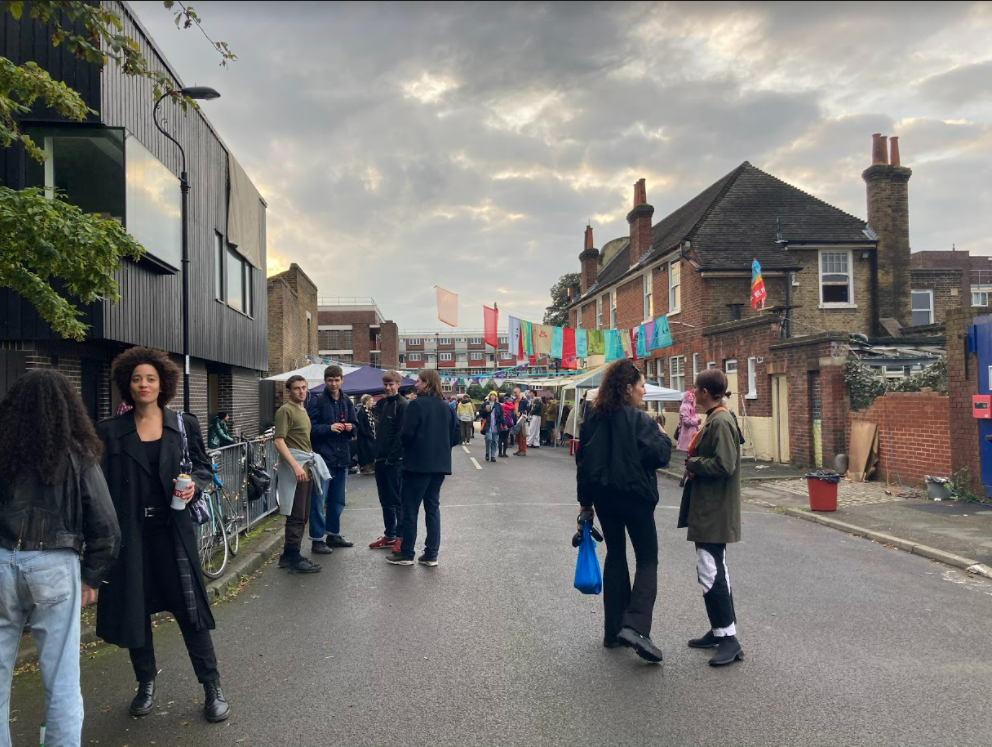
Located near the intersection of Peckham and New Cross, the Rising Sun was an active pub from the late 19th century to just before the turn of the millennium, when it was converted into a residential premise in 1999. After being rented out as flats to various tenants for two decades, the current residents, a group of artists and musicians known as the Rising Sun Collective, who have lived in the space for five years, are now planning to turn the space into a housing co-operative. They hope to collectively buy the property and therefore remove the need for landlords, who essentially use tenants to pay their homes and mortgages, trapping many young people today into the confines of ‘generation rent’, unable to save for their own house due to extortionate rent cost, as well as extortionate housing prices.
“While it isn’t a new concept, housing co-ops have become increasingly appealing to young people caught up in the maelstrom of the housing crisis.”
To put it into perspective, house prices have risen fivefold since 1968, but our wages have only doubled in real terms. On top of this, around 75% of the average person’s income is needed to cover the average rent in London which makes it extremely difficult for young people to save. This chasm of uncertainty and lack of social housing, due to Thatcherite policies like “right-to-buy,” has forced many young people to look at alternative ways to live. While it isn’t a new concept, housing co-ops have become increasingly appealing to young people caught up in the maelstrom of the housing crisis.
For the Rising Sun Collective, the choice to move to a housing co-op was a gut reaction to their six-month eviction notice, leaving them frantically wondering how to cling on to the pub-turned-home they had been living in for the past five years. This led them to go to advisors who gave them a financial forecast, which then pushed them to take out a mortgage and start raising the rest of the money through loan stock (where investors buy stocks and shares for an agreed period up until the loan is paid off) and donations.
For Scott, a founding resident and member of the Rising Sun collective, the idea of autonomy offered by a cooperative structure was one of its biggest attractions. “Through the housing co-op, we are going to have governance over how the house is run, we’re going to have control of how the money’s spent, we’re going to be able to have a say and decide democratically everything from what colour we paint the walls, to whether we build another recording studio in the basement to whether or not we have a big street party like we’re doing today.”
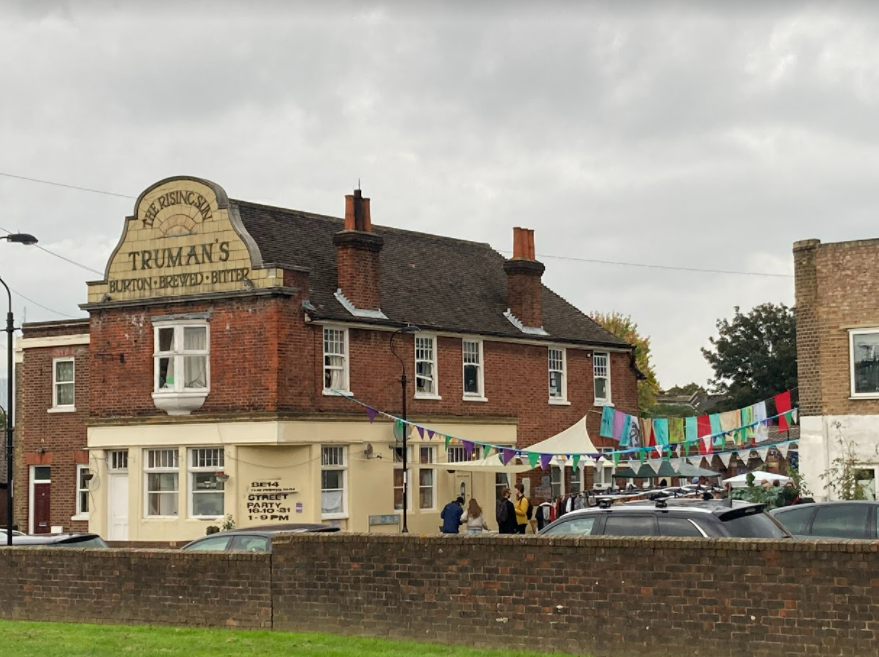
The ambience of the street party is nothing new for the collective, who have made a name for themselves within the music and live events scene, leading them to host many artists over the years, including Obongjayar, Yussef Dayes, black midi, Novelist, as well as AJ Tracey in a special Boiler Room set.
“One of the first things we did when we moved in is build a recording studio in the basement. That was very much us pulling together our own gear. Then we created a live event space where we could do rehearsals and do small scale gigs,” Scott explains. “It’s not uncommon for people to write and record music in the studio, then weeks later they’re rehearsing it and weeks later they’re performing it in the same basement. black midi did one of their first gigs here. I think that’s when the press and label scouts come to this, it just has a different kind of energy than a usual venue.”
Opening up an art and event space in Peckham by a group of mostly ex-Goldsmith University students also poses questions about the gentrification of the area. Peckham has changed a lot over the past decade, from a culturally rich area that had been crafted by the traditions of African and Caribbean migrants, and especially the Nigerian communities who came to the UK from the second half of the 20th century to a neighbourhood which is rapidly being gentrified.
“It’s hard to ignore that the Rising Sun does highlight a paradox between long-term residents who are trying to save the area from gentrification and recently moved-in artists who are trying to save their creative community.”
Today, London’s ‘regeneration’ projects, which effectively tear down affordable housing and hike up prices of pre-existing housing, are displacing long-standing communities and businesses in favour of students, young professionals and creatives who are drawn to the cool aesthetic. A recent article in The Times affirms this gentrification. “Today Peckham has more positive associations: SE15 is just about the coolest postcode in the capital, renowned for its nightlife, creative culture and melting-pot vibe.” it reads.
It’s hard to ignore that the Rising Sun does highlight a paradox between long-term residents who are trying to save the area from gentrification and recently moved-in artists who are trying to save their creative community. Despite this, the collective is adamant that their space benefits their local community too.
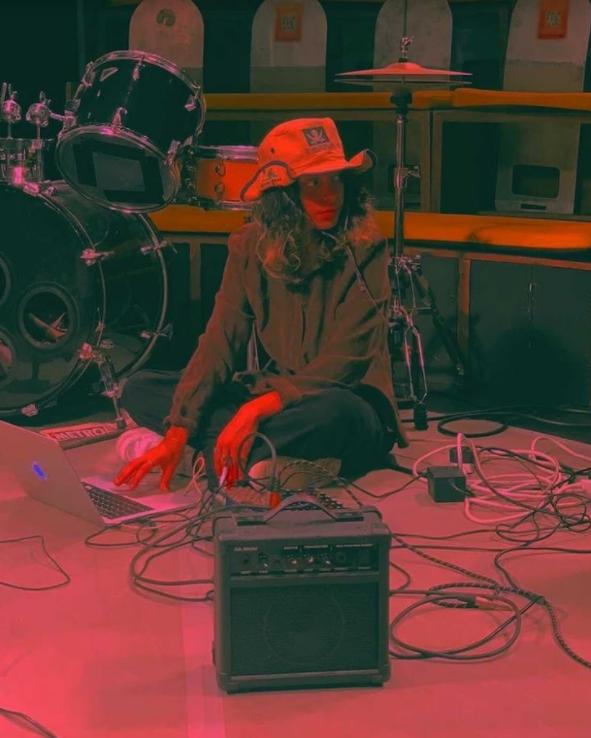
Musician Sheiva who grew up in South-East London, not far from the Rising Sun pub, is one local artist that uses the studio space to create, rehearse, record and perform her music. Sheiva’s music is an amalgamation of grunge, R&B and post-punk. “Every collaborator has their own spice to add to the pot of sound and I’m just here to facilitate that vibe in order to create music that has never been heard before, expressive, and unapologetic,” she says. To Sheiva, she believes that the Rising Sun offers freedom of creativity with minimal boundaries, and approves the decision to turn the pub into a housing co-op: “I can’t wait to cooperatively run the Rising Sun with everyone. We have a lot of plans for events in the house, it will be so fun. I hope we can help other housing co-ops to do the same. If we can do it I’m sure anyone can.”
Just up the road from the Rising Sun is Sanford, the oldest-purpose built housing co-op in the UK, which encapsulates a row of flats with an organic vegetable garden and ponds built and planted by the residents. This was one of the inspirations for the Rising Sun Collective who had visited the space and subsequently received donations from Sanford’s money pot, which is the money collected from residents who continue to pay a low rent after the mortgage is paid off. This pot is used for home maintenance and other necessities on a collective decision by the members of the co-operative.
“The future of housing freedom is a future where all communities have access to affordable homes, away from the seedy clutch of landlords.”
“Theoretically, the model of the co-op could be insidious because after you’ve paid off all your debts – in our case we’ve had a 65-year forecast – the money that you would put in towards rent just ends up building in a pot, and normally other co-ops at that point go on to buy another house,” says Chloe, who used to live at the Rising Sun and is deeply involved in setting up the co-op. “However, this can lead to more affordable housing, which will hopefully be the legacy of somewhere like this.”
In order for the next generation to be able to live, we must urgently explore alternative ways to deal with the housing crisis. Housing co-operatives are one example of refusing the top-down domination of the housing market, however, they do not singularly solve the issue of deprivation and exploitation that creates the storm of the crisis. The Rising Sun Collective provides an example of how housing co-operatives can be formed to resist the exploitation of the housing market, but we cannot stop at this. We must also acknowledge the legacy and actions of Black and POC communities in the scene, such as the African-descendant self-build co-op at Nubia Way in South-East London in the 1990s, which became London’s first Black housing co-op and Europe’s largest Black-led self-build scheme. The future of housing freedom is a future where all communities have access to affordable homes, away from the seedy clutch of landlords.





